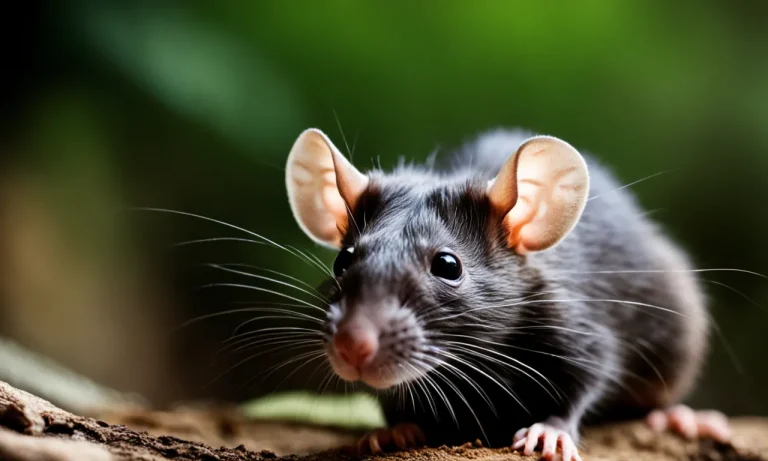If you’re wondering whether Nigerian Dwarf goats can provide milk for your family or farm, you’re not alone. These petite goats are rising in popularity as backyard dairy goats. But how much milk can you realistically expect to get from Nigerian Dwarfs?
In short, yes, Nigerian Dwarf goats do produce milk, although generally in smaller quantities compared to larger dairy goat breeds.
In this comprehensive guide, we’ll cover everything you need to know about milking Nigerian Dwarf goats. You’ll learn about typical milk production, ideal dairy conformation, how to maximize milk output, and much more.
Background on Nigerian Dwarf Goats
Nigerian Dwarf goats are a small breed of dairy goats that are known for their excellent milk production. Despite their small size, these goats are highly efficient milk producers, making them a popular choice among small-scale farmers and homesteaders.
Brief History and Origins
The Nigerian Dwarf goat breed originated in West Africa and was brought to the United States in the 20th century. They were primarily used for their milk and meat production. Over time, breeders focused on improving the milk production capabilities of these goats, resulting in the development of the Nigerian Dwarf breed as we know it today.
These goats are well-adapted to a variety of climates and can thrive in both hot and cold environments. They are also known for their friendly and docile nature, making them suitable for families and small farms.
Characteristics and Conformation
Nigerian Dwarf goats are known for their small size, with does typically weighing between 55 and 75 pounds, and bucks weighing between 60 and 80 pounds. They have a compact body shape and short legs, which gives them a unique and adorable appearance.
These goats come in a variety of colors and patterns, including black, chocolate, and white. They also have different ear types, with some having upright ears and others having drooping ears. Their coats are short and dense, requiring minimal grooming.
Ideal Dairy Conformation
While Nigerian Dwarf goats are small in size, they possess excellent dairy conformation. Their udders are well-attached and have a good capacity for milk production. The teats are of ideal size and shape, making it easy for milking.
It’s important to note that not all Nigerian Dwarf goats are suitable for dairy production. Breeders carefully select goats with desirable milk production genetics to maintain and improve the breed’s milk production capabilities.
This ensures that Nigerian Dwarf goats continue to be a reliable source of high-quality milk.
If you’re considering raising Nigerian Dwarf goats for their milk, it’s essential to provide them with proper nutrition, regular veterinary care, and a clean and comfortable living environment. With the right care and management, Nigerian Dwarf goats can provide a steady supply of delicious and nutritious milk for your family or small-scale dairy operation.
Do Nigerian Dwarfs Produce Milk?
Yes, Nigerian Dwarf goats do produce milk, although their milk production is generally lower than that of standard dairy goats. Nigerian Dwarfs are a small breed of goat that originated in West Africa. Despite their small size, they are known for their excellent milk production.
Yes, But Less Than Standard Dairy Goats
Compared to larger dairy goat breeds, Nigerian Dwarfs produce less milk. On average, a Nigerian Dwarf goat can produce between 1 to 2 quarts of milk per day. This may seem low compared to larger breeds that can produce several gallons of milk per day, but it’s important to remember that Nigerian Dwarfs have smaller bodies and therefore have less capacity to produce milk.
Average Milk Production
The milk produced by Nigerian Dwarf goats is known for its high butterfat content, which makes it ideal for making cheese, butter, and other dairy products. Nigerian Dwarf milk has an average butterfat content of around 6 to 10 percent, compared to standard dairy goat breeds that typically have a butterfat content of 3 to 4 percent.
Despite the lower milk production, the high butterfat content makes Nigerian Dwarf milk highly desirable for certain dairy products.
Fat Content and Quality
The high butterfat content in Nigerian Dwarf goat milk not only contributes to its rich flavor but also makes it a healthier choice. The higher fat content means that the milk is more nutrient-dense, providing a good source of vitamins and minerals.
Additionally, the fat globules in Nigerian Dwarf goat milk are smaller and more easily digestible than those in standard dairy goat milk, making it a great option for individuals with lactose intolerance or other digestive sensitivities.
Breeding for Milk Production
In recent years, there has been an increased focus on breeding Nigerian Dwarf goats specifically for milk production. Breeders are selecting goats that have a proven track record of high milk production and breeding them to further improve the milk production capabilities of the breed.
This has resulted in Nigerian Dwarf goats that can produce more milk than the average, although still not reaching the levels of larger dairy goat breeds.
Tips for Milking Nigerian Dwarfs
Wait Until After Kidding
When it comes to milking Nigerian Dwarf goats, it’s important to wait until after kidding. Kidding refers to the process of giving birth, and milking too early can cause complications for both the goat and the milk production.
The doe needs time to recover and bond with her kids, and allowing this natural process to occur will ensure a healthier and more successful milking experience.
Milk Goats Twice Per Day
In order to maximize milk production, it’s recommended to milk Nigerian Dwarf goats twice per day. This regular and consistent milking schedule helps to stimulate milk production and ensures that the goats are not overly full, which can lead to discomfort and potential health issues.
By milking twice per day, you’ll be able to obtain a steady supply of fresh and nutritious goat milk.
Provide Proper Nutrition
A well-balanced diet is crucial for Nigerian Dwarf goats to produce high-quality milk. Make sure to provide them with a diet rich in fiber, such as hay or pasture, along with a high-quality grain formulated specifically for dairy goats.
Additionally, ensure that they have access to clean and fresh water at all times. Proper nutrition is key to maintaining the health and productivity of your goats.
Keep Udders Clean
Before and after each milking session, it’s important to clean the udders of Nigerian Dwarf goats. This helps to prevent the transfer of bacteria and ensures the milk remains clean and safe for consumption. Use warm water and a gentle, non-toxic udder wash to clean the udders thoroughly.
It’s also a good idea to regularly trim the hair around the udders to further reduce the risk of contamination.
Supplement With Grain
Supplementing Nigerian Dwarf goats’ diet with grain can help boost milk production. Grain provides additional energy and nutrients needed for milk production. When choosing a grain, opt for a high-quality dairy goat grain that contains the necessary vitamins and minerals.
Consult with a veterinarian or a knowledgeable goat breeder to determine the appropriate amount of grain to supplement based on the specific needs of your goats.
Handle Goats Gently
When milking Nigerian Dwarf goats, it’s important to handle them gently and with care. This not only ensures the comfort and well-being of the goats but can also impact milk production. Stress or discomfort can hinder milk letdown and decrease milk production.
Create a calm and peaceful milking environment and be gentle when handling the goats to promote a positive milking experience for both you and the goats.
Watch for Signs of Mastitis
Mastitis is a common condition in dairy goats that can affect milk production. It is characterized by inflammation of the udder and can be caused by bacteria entering the udder through teat openings. Regularly inspect the udders for any signs of redness, swelling, or abnormal discharge.
If you notice any abnormalities, consult with a veterinarian immediately for proper diagnosis and treatment. Early detection and prompt treatment are crucial in managing mastitis and ensuring the overall health of your Nigerian Dwarf goats.
Using Nigerian Dwarf Goat Milk
Did you know that Nigerian Dwarf goats are not only adorable, but they also produce delicious and nutritious milk? Yes, you heard it right! These pint-sized goats are excellent milk producers, making them a popular choice among small-scale farmers and homesteaders.
For Drinking
Nigerian Dwarf goat milk is not only rich in flavor but also packed with essential nutrients. It has a high butterfat content, making it perfect for drinking on its own or as a base for smoothies and milkshakes.
The milk is known for its creamy texture and sweet taste, making it a favorite among milk lovers. Plus, it’s easier to digest compared to cow’s milk, making it a great alternative for those with lactose intolerance.
Cheesemaking
If you’re a fan of cheese, Nigerian Dwarf goat milk is a great choice for making your own homemade cheeses. Its high butterfat content makes for a creamy and flavorful cheese, whether you prefer soft cheese like chevre or hard cheese like cheddar.
You can experiment with different recipes and flavors to create your own unique cheeses that will impress your friends and family.
Yogurt
Nigerian Dwarf goat milk is also perfect for making homemade yogurt. The creamy and tangy yogurt made from this milk is a healthy and delicious snack or breakfast option. You can customize the flavors by adding fruits, honey, or granola.
It’s a great way to incorporate probiotics into your diet and enjoy the benefits of fresh and homemade yogurt.
Soapmaking
Not only is Nigerian Dwarf goat milk tasty, but it also has amazing skincare benefits. Its high butterfat content and natural vitamins and minerals make it a great ingredient for soapmaking. Goat milk soap is known for its moisturizing properties and is gentle on the skin.
It can help soothe dry and irritated skin, leaving it soft and supple. Making your own goat milk soap is a fun and rewarding craft that allows you to create personalized skincare products.
Lotion Bars
If you’re looking for a natural and nourishing moisturizer, Nigerian Dwarf goat milk can be used to make lotion bars. These solid bars are made with a combination of oils, beeswax, and goat milk, providing intense hydration and leaving your skin feeling smooth and moisturized.
Lotion bars are convenient to use and can be customized with different scents and essential oils to suit your preferences.
So, if you’ve been wondering what to do with Nigerian Dwarf goat milk, the possibilities are endless! From drinking it fresh to creating delicious cheeses, yogurt, soap, and lotion bars, this milk is truly versatile.
Give it a try and experience the amazing flavors and benefits that Nigerian Dwarf goat milk has to offer!
Considerations for Raising Dairy Nigerian Dwarfs
Herd Management
Raising dairy Nigerian Dwarf goats requires careful herd management to ensure optimal milk production. It is important to maintain a clean and healthy environment for the goats, including regular vaccinations and deworming.
Regular monitoring of the goats’ health and well-being is also essential to catch any potential issues early on.
In addition, proper nutrition is crucial for milk production. Nigerian Dwarf goats should be fed a balanced diet consisting of high-quality hay, fresh water, and a commercial goat feed that is specifically formulated for dairy goats.
Providing mineral supplements and access to pasture or browse can also contribute to the overall health and productivity of the goats.
Housing and Fencing
When it comes to housing and fencing, Nigerian Dwarf goats have specific requirements. They are small in size, so their housing should provide enough space for them to move around comfortably. A well-ventilated and clean barn or shelter is necessary to protect them from extreme weather conditions.
As for fencing, Nigerian Dwarf goats are known for their agility and ability to escape. Sturdy fencing is essential to prevent them from wandering off or getting into areas where they shouldn’t be. Fencing should be at least four feet high and include a secure gate to ensure the safety of the goats.
Breeding and Kidding
Breeding Nigerian Dwarf goats requires careful consideration. It is important to select healthy and genetically diverse breeding stock to maintain the overall quality and productivity of the herd. Breeding should be done under the guidance of an experienced breeder or veterinarian to ensure successful pregnancies and healthy kidding.
Kidding, or the process of goats giving birth, is a critical time for both the doe (female goat) and her offspring. Adequate space and privacy should be provided for the doe to give birth comfortably. It is essential to monitor the doe during labor and provide any necessary assistance if needed.
Proper nutrition and post-kidding care are also important to ensure healthy kids and successful milk production.
Daily Care and Feeding
Daily care and feeding play a significant role in the milk production of Nigerian Dwarf goats. They should be milked twice a day, with proper sanitation practices followed to maintain milk quality. Regular grooming and hoof trimming should also be part of the daily care routine to keep the goats clean and prevent any health issues.
Feeding should consist of a balanced diet that meets the nutritional needs of dairy goats. This includes providing fresh water, high-quality hay, and a commercial goat feed that contains adequate levels of protein, vitamins, and minerals.
Additionally, offering treats such as fruits and vegetables in moderation can be a great way to provide enrichment for the goats.
It is important to note that Nigerian Dwarf goats are known for their rich and flavorful milk, which is often preferred by artisan cheese makers. Their small size makes them easier to handle and manage compared to larger dairy goat breeds.
By following proper herd management practices and providing the necessary care, Nigerian Dwarf goats can be a valuable addition to any dairy operation or homestead.
Conclusion
While Nigerian Dwarf goats produce less milk than standard dairy breeds, their petite size, high butterfat milk, and winning personalities make them ideal backyard dairy goats. With proper care and management, Nigerian Dwarfs can produce 1-2 quarts of milk per day at peak lactation.
Their rich milk is wonderful for cheese, yogurt, soap, and more. We hope this guide gave you a helpful overview of milking Nigerian Dwarf goats!






